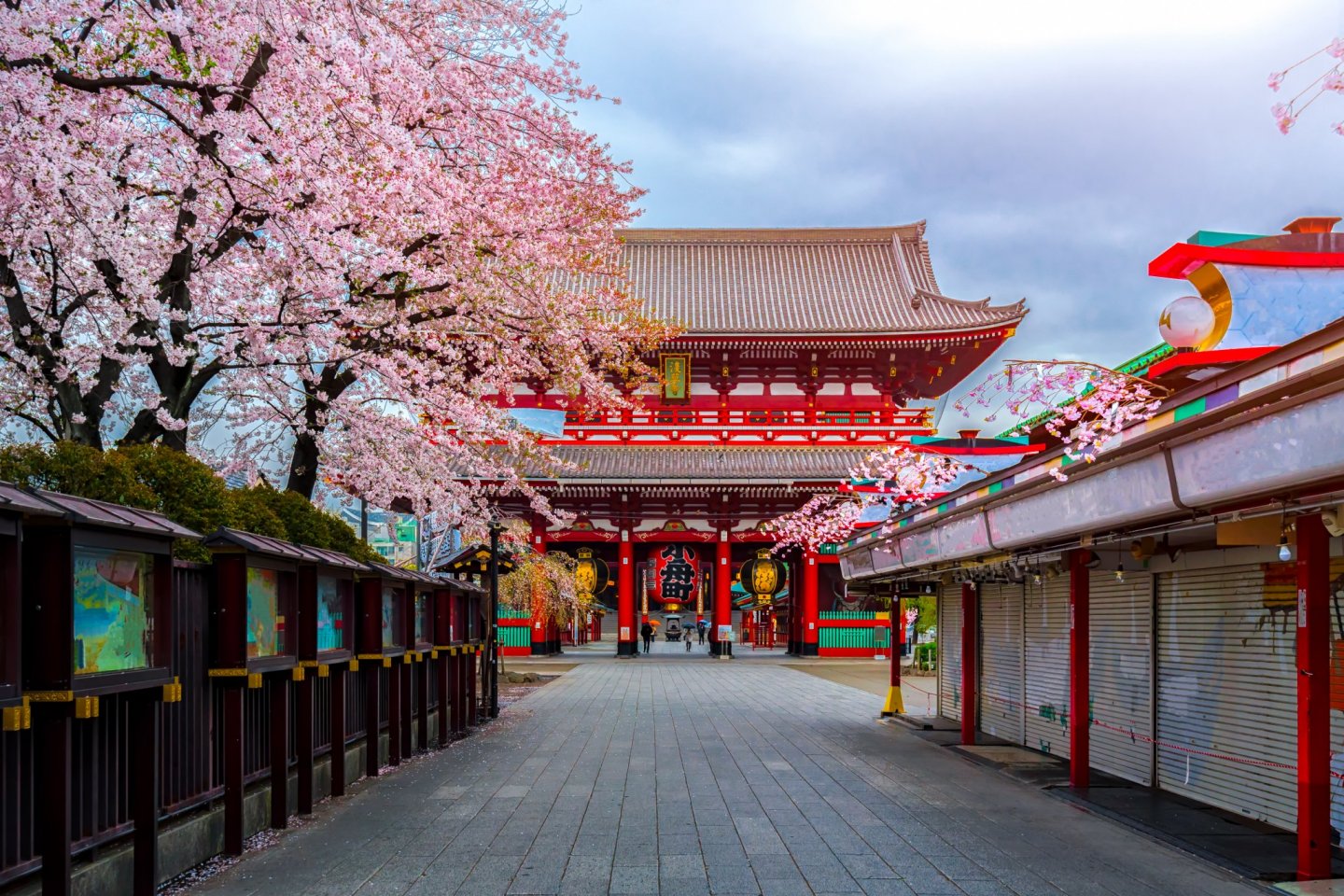What is a Temple?
Temples are religious sites connected to Buddhism, which arrived in Japan around the middle of the 6th century. There are many different sects of Buddhism within Japan; some of the more notable branches include Nichiren Buddhism, Shingon Buddhism, Pure Land Buddhism and–perhaps the most well known–Zen Buddhism. Temples often house an important Buddhist relic or statue related to the founder or deities of that particular sect.
Purification Rituals at a Temple
It’s important not to step directly on the threshold of the main gate when entering the grounds of a temple. While very few people remember the practice, women should enter with their right foot first, and men should begin with their left.
Just as when visiting a shrine, those entering the grounds of a temple are encouraged to purify themselves. Often, a temizuya or chozuya water basin is placed near the entrance for visitors to use to rinse their hands and mouth. Additionally, a temple often includes a jokoro, or incense burner. Visitors are encouraged to waft the smoke from the incense burner over certain parts of their bodies that might be feeling unwell, in hopes that the smoke will bring healing. Wafting it toward the head is said to bring wisdom and clarity of mind.
How to Pray
Those wishing to pray in the main hall of a temple should throw a few coins in the offering box, though there is no suggested amount or specific lucky coin to consider. Unlike at a shrine, there is also no need to clap before you pray. Simply bow at a slight angle (some suggest 45 degrees is ideal), put your hands together, and offer up your prayers. Bow once more before leaving the main hall, and also as you exit the temple precincts.
Some temples allow visitors to light incense sticks to leave as offerings. It is common to choose only one stick and light it from a nearby candle or enclosed flame. Use your hand to extinguish any actual flames (it’s apparently bad form to blow it out) and then carefully stand the stick upright in the sand.
Services Held at Temples
Some temples hold daily prayer services that are open to the public. These services are often held to pray for the souls of the departed. For a fee, worshippers may also request a prayer service for a specific purpose (i.e. to honor a particular deceased relative).
Staying Overnight at a Temple
Spending the night at a shukubo, or temple lodging, has become a popular pastime in recent years, particularly at the mountaintop temple complex of Koyasan in Wakayama Prefecture. Shukubo were originally intended for those making Buddhist pilgrimages and provide overnight visitors will simple accommodations and vegetarian shojin ryori meals. In many shukubo, guests are invited to take part in the morning prayer ceremonies.
Notable Temples in Japan
Japan has no shortage of temples, and visitors will find these religious buildings on remote mountaintops as well as in the middle of major cities. Some of the most famous temples in Japan include Senso-ji in the Asakusa district of Tokyo; the hillside temple of Kiyomizudera on the eastern edge of Kyoto, and the 88 temples of the famed pilgrimage trail on the island of Shikoku.






















